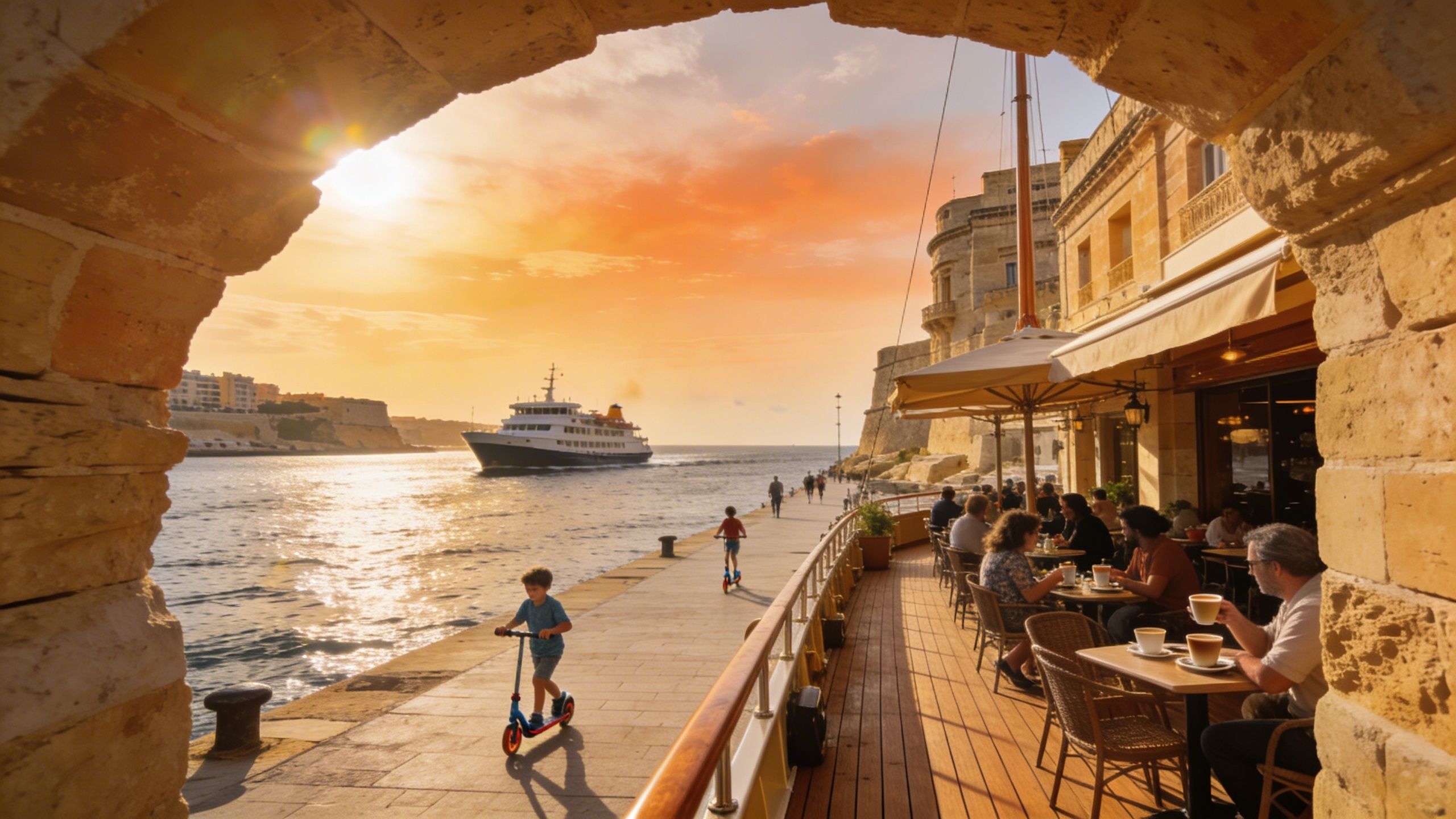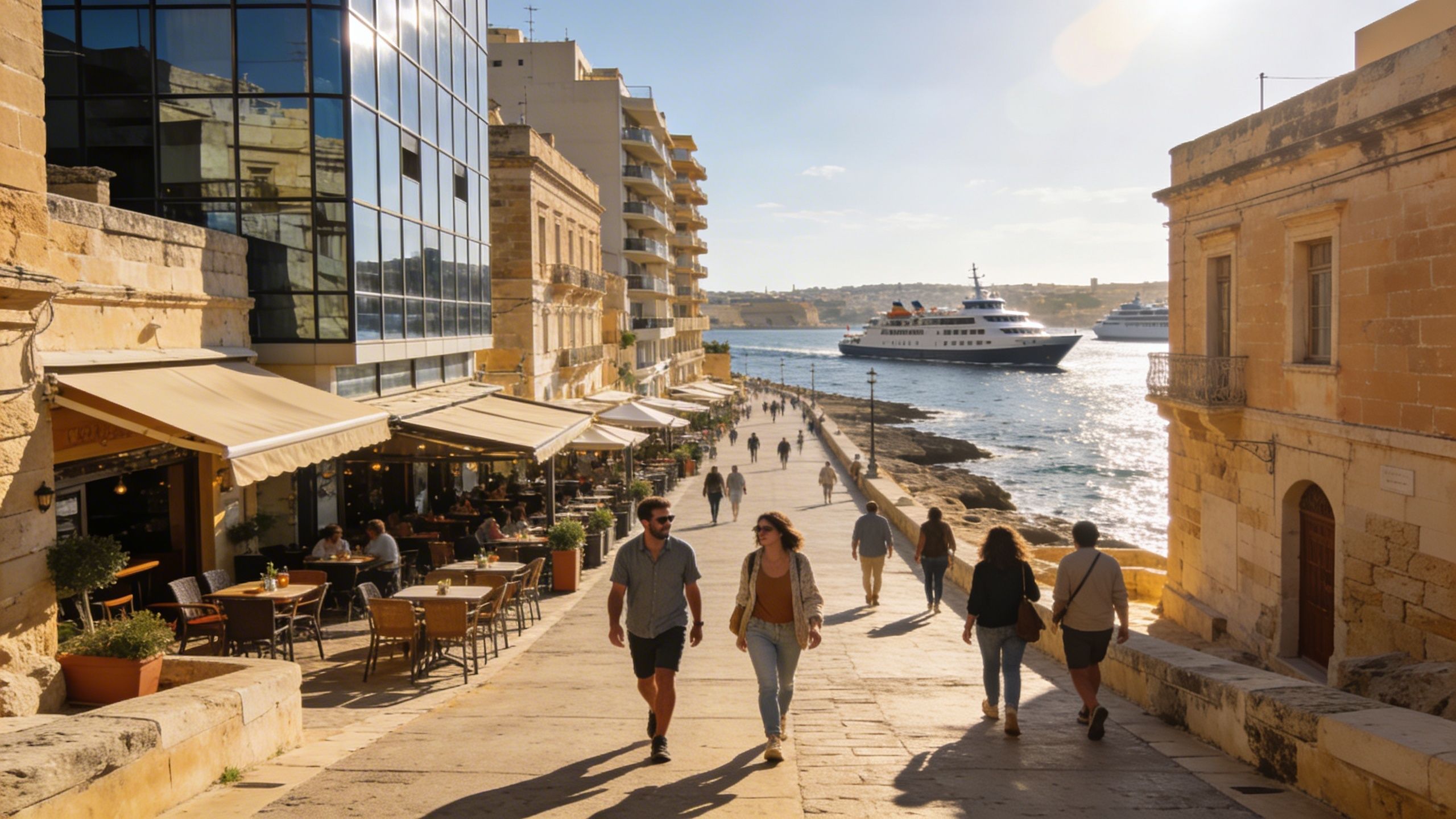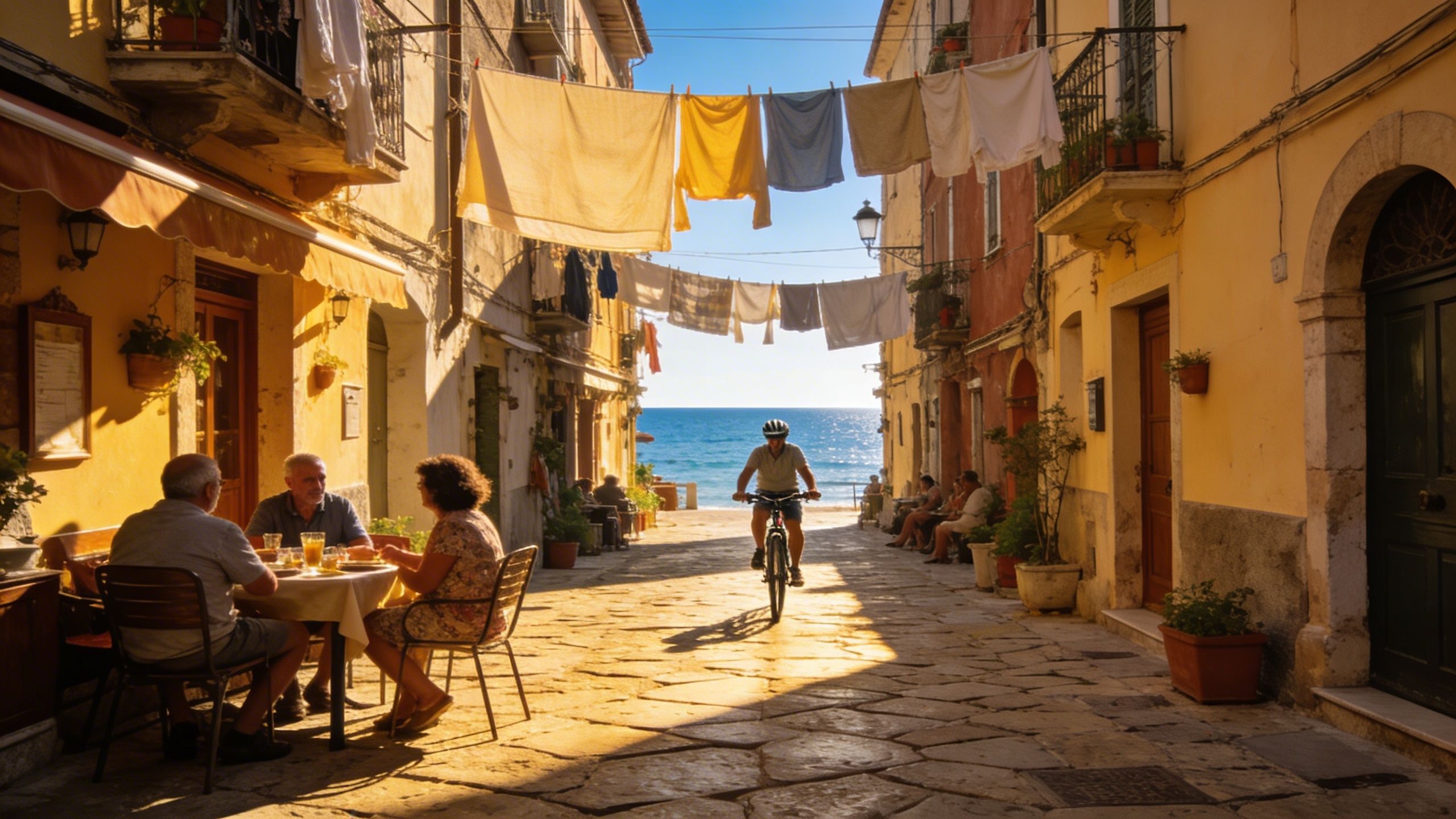Neighbourhood Life Over Price: France’s Urban Market Reality
Urban France rewards buyers who prioritise neighbourhood life over headline prices; Q1 2025 shows modest price recovery but local choices shape long-term value.
Imagine a Sunday in Paris: chestnuts roasting near Canal Saint-Martin, a boulangerie window fogged with steam, and neighbours arguing gently over organic tomatoes at Marché d’Aligre. That same morning in Lyon, a coffee on Rue Mercière precedes a tram trip to the Croix-Rousse workshops. France carries these intimate rhythms across cities large and small, and for many international buyers the reality — everyday markets, late dinners, layered neighbourhood identities — matters more than headlines about price tags. Recent INSEE figures show prices stabilising into 2025, but the why and where of value still depends on which urban hub you choose and how you intend to live there.
Living the France life — cities that feel like neighbourhoods
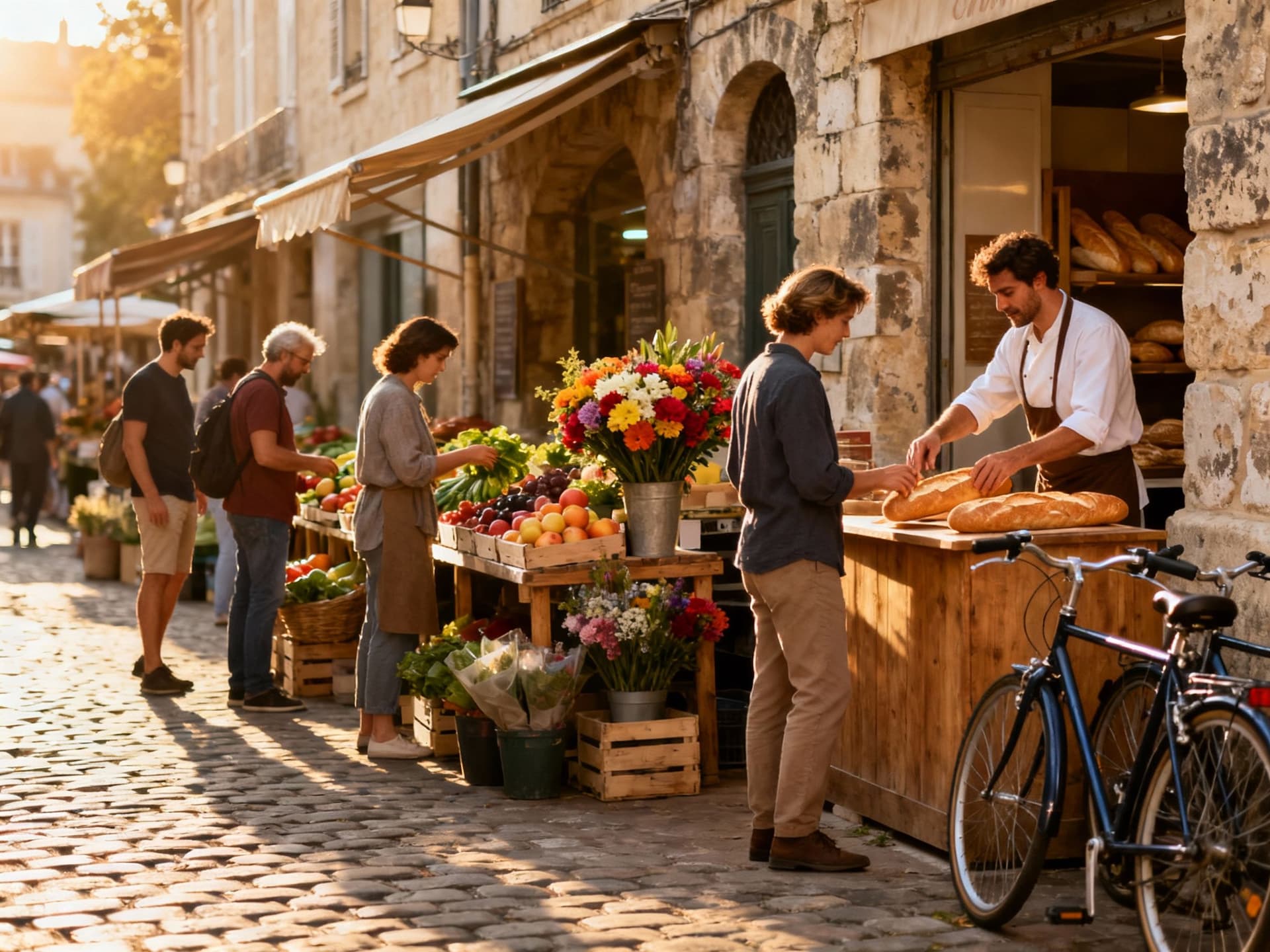
France’s major urban centres feel less like anonymous metro zones and more like clusters of villages stitched together. In Paris the 3rd and 4th (Le Marais) still offer narrow streets, discreet ateliers and cafés where proprietors recognise you by order. Lyon’s Presqu’île and Croix-Rousse trade Parisian gloss for market rhythms and craftsmen’s ateliers. Marseille’s Cours Julien is loud, creative and seawater-close; Montpellier’s Écusson mixes student life with medieval fabric. These differences shape daily life: where you will shop, how you get home, and whether a Saturday morning is taken by the marché or by errands.
Paris: lived-in luxury and micro-neighbourhoods
Walking the Marais, Saint-Germain or Canal Saint-Martin reveals small differences that matter: a morning market that exists year-round, a boulangerie known for almond croissants, a locksmith who’s worked on the same street for 30 years. In practice this means apartments that are expensive per square metre but buy you immediate access to ritualised life — markets, friendships, late-night cafés. If the lifestyle is your priority, prepare to trade floor area for proximity to those streets and the convenience of neighbourhood services.
Lyon, Marseille, Nantes: scale, cost and coastal breath
Beyond Paris you get more space for the money and a different cadence. Lyon offers restaurant density and a compact historic centre that feels manageable. Marseille provides a seaside urban life where calanques and fish stalls sit next to creative districts. Nantes and Bordeaux balance green space with cultural programming and steady buyer interest. These hubs tend to reward buyers who want neighbourhood life without paying Paris premiums.
- Morning coffee at Café de la Paix (Paris), Saturday oysters at Port de la Lune (Bordeaux), sunset swims after work at Plage du Prado (Marseille), weekend markets on Place Carnot (Lyon), bike Sunday in Ile de Nantes — everyday rituals that shape where people buy.
Making the move: matching property types to how you’ll live
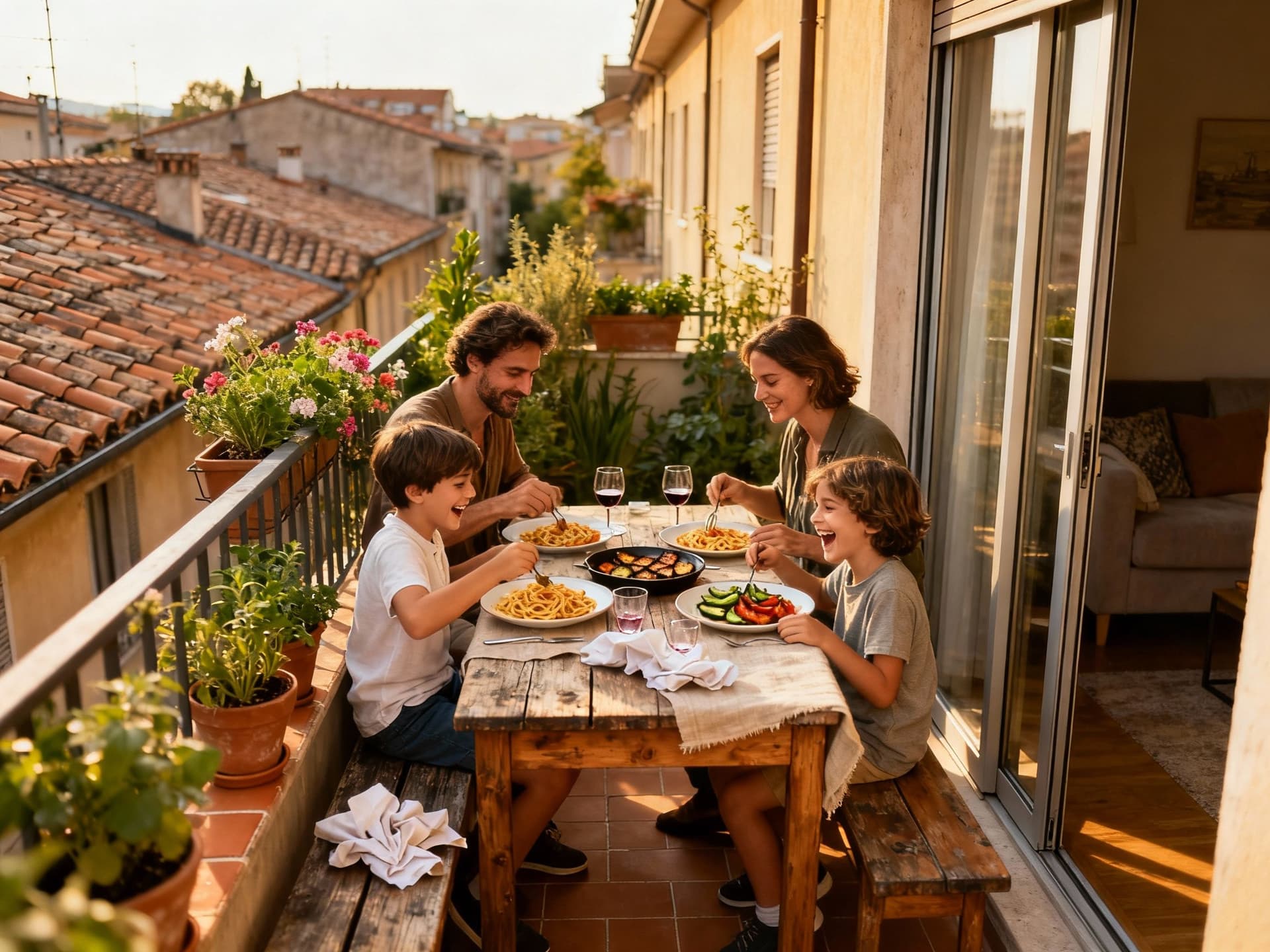
Stability in national indices masks wide local variation. INSEE reported a modest rebound in Q1 2025 after several quarters of decline, but Paris and provincial cities behave differently. The property style you choose — Haussmann flat, renovated town house, contemporary block — determines maintenance, adaptability and the life you can host. Think in terms of rooms and rituals: where will you work, cook, entertain and store bicycles? Those choices often determine which neighbourhoods make sense long before you calculate yield or tax implications.
Property styles and everyday use
Historic apartments (Haussmann-era) offer tall ceilings and central addresses at the cost of storage and higher copropriété charges. Townhouses in Lyon or Bordeaux give garden access and a clearer indoor-outdoor life but can sit in conservation zones with complex renovation rules. New-builds and recent conversions are easier to manage and often more energy-efficient — an important consideration for long-term comfort and resale in France’s tightening environmental standards. Align the physical property with your daily rituals rather than aspirational photos.
Working with local experts who know the life you want
An agent who knows markets is helpful; a team that knows neighborhoods is essential. Local agencies and notaires explain copropriété rules, recurring charges and if a property’s façade is listed. They also locate the small-scale features that create everyday value: an elevator that actually fits your moving boxes, a courtyard that gets afternoon sun, or a market that remains open in winter. Use experts to test how a property supports your life — not only how it fits your balance sheet.
- 1. Visit the neighbourhood at three times of day (morning market, lunchtime, late evening). 2. Ask the agent for recent copropriété meeting minutes and utility breakdowns. 3. Check proximity to healthcare, schools and transport; walk those routes. 4. Inspect storage and deliveries (elevator size, bin rooms).
Insider knowledge: mistakes expats keep repeating
Expat buyers often arrive with a list of must-haves and a headline budget, then discover a dozen small local costs that erode value. Common regrets include underestimating copropriété charges, overpaying for proximity without confirming noise or footfall patterns, and ignoring the seasonal rhythm of a city’s rental demand. A spike in activity and modest price recovery in 2025 shows demand returning, but that also means competition for well-located, well-documented homes. Prepared buyers win; impulsive ones pay for the lesson.
Cultural and practical integration: more than language
Language helps, but local integration is also about routines: where you register for waste collection, which boulangerie opens at 6am, how the neighbourhood association manages refuse. Expat communities concentrate around certain arrondissements and quartiers — Marais, Saint-Roch in Montpellier, or Saint-Victor in Marseille — and they can accelerate integration but also create islands of non-local living. For long-term satisfaction, blend with local rhythms rather than replicating a foreign bubble.
Long-term life: what grows value besides price
- Local schools with good reputations; reliable transport links and short commutes; active neighbourhood associations maintaining streets and services; access to green space and weekly markets; energy performance and low maintenance obligations.
If you want to act: start with two neighbourhood visits, ask for recent sales comparables from a local notaire, and obtain utility and copropriété statements before making an offer. Use those documents to negotiate contingencies rather than relying only on price per square metre. The daily life you want — coffee at a specific café, afternoon market walks, short commutes — is what should drive your shortlist. Professional guidance turns that lifestyle brief into a defensible offer.
Conclusion: France offers neighbourhood-first urban life across several major hubs. National indices suggest modest recovery in 2025, but the right purchase depends on aligning property form with daily rituals. If you prioritise life over headline metrics, an investment in neighbourhood knowledge — local agents, notaires, and multiple timed visits — pays back in quality of life and long-term resilience.
Swedish expat who moved from Stockholm to Marbella in 2018. Specializes in cross-border legal navigation and residency considerations for Scandinavian buyers.
